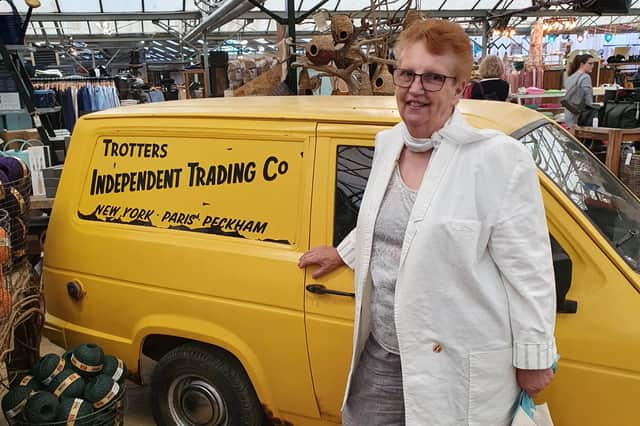Banbury woman who was told she had months to live defies the odds to become the longest surviving myeloma patient in the UK


Alberta Dolton was first diagnosed with myeloma in 1995 when she was 52 years old after experiencing breathlessness, severe back pain and flu-like symptoms.
Despite being diagnosed with the incurable blood cancer at a time when no treatment was available and the average life expectancy was 12 to 24 months, Alberta continues to defy the odds today and is now among those showing support for charity Myeloma UK’s fight to transform patients’ lives.
Advertisement
Advertisement
Around 5,800 people are diagnosed with myeloma each year and the blood cancer which occurs in the bone marrow currently affects more than 24,000 people in the UK with approximately 3,000 people dying from the disease every year.


Alberta said: “I want more people to know about myeloma.
"You hear a lot about other cancers on TV, but nobody mentions myeloma – nobody mentions my cancer. I’ve been lucky, I’ve never relapsed but we still don’t know what causes it and therefore there’s no cure. It’s the last hurdle and that’s why it’s so important for us to send a donation to Myeloma UK every month and to fund research."
In 1995 there was no treatment for myeloma and patients were forced to rely on drugs designed to treat other types of cancer.
However, Alberta was fortunate enough to join a clinical trial which she credits with keeping her alive all these years.
Advertisement
Advertisement
Alberta said: “If I had not had this trial, they told me I had six to nine months, I said, I just want to live to see my grandchildren. I’ve never relapsed – not once.”
Undeterred by the diagnosis Alberta wasted no time in getting back to work and found employment at the Morrisons supermarket, where she worked as a cleaner for the following 20 years.
She said; “I said, I can’t sit around and do nothing, I had a job, I climbed Mount Vesuvius, it has not stopped me doing anything. I know it affects people in different ways but I want to say to people, ‘Look at me, I’m living well with myeloma. It’s not a death sentence for people anymore’. I’ve taken it one day at a time for the last 27 years. I’ve always been a jolly person and happy-go-lucky and that’s helped me. I never let myself get down. I always look up.”
While myeloma is incurable, the disease is treatable in the majority of cases, treatment is aimed at controlling the disease, relieving the complications and symptoms it causes, and extending and improving patients’ quality of life.
Advertisement
Advertisement
Today, patients’ life expectancy has quadrupled and there are now 12 treatments available across the UK, but there is still a way to go to make sure those affected by myeloma get the care they need.
Many myeloma patients face long waits to receive the right diagnosis with a significant amount of them experiencing severe or life-threatening symptoms like broken bones and spines by the time of their diagnosis.
Alberta said: “If you feel your body is changing, go to the doctor – don’t think about it twice, don’t leave it too late, they caught my cancer early and I’m still here today.”